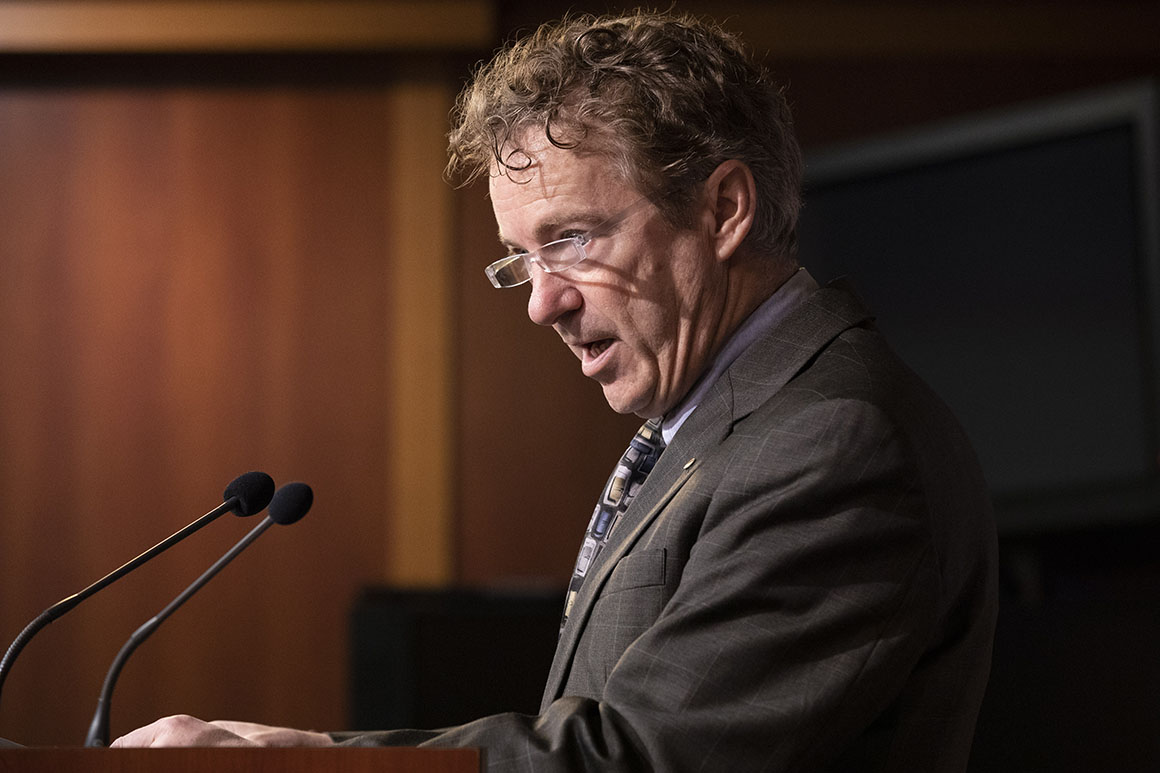
It’s the type of move that might have prompted a backlash from within his own party not too long ago, and several senators said they would not have done it. But after three weeks of the impeachment trial and with Trump’s firm grip over the party, there was little blowback from his colleagues on Tuesday.
“I was glad we didn’t put the chief justice in a bad situation,” said Sen. Roy Blunt (R-Mo.), a member of the GOP leadership. “I have some sympathy for [Paul’s] view on this. The whistleblower law should protect the whistleblower’s job and future opportunity and not necessarily hide who the whistleblower is.”
“It’s fine,” said Sen. Kevin Cramer (R-N.D.). “Had there been a vote on it, I probably would have voted to override the chief justice.”
Sen. Chuck Grassley (R-Iowa), who has long touted his reputation protecting whistleblowers, said simply: “If it’s the same name everybody else used, then it’s kind of out there.”
Trump has repeatedly attacked the whistleblower on social media and in recent remarks. And in using the person’s name on the Senate floor, Paul went further than any other House or Senate Republican. When Paul sought to have Roberts read his question during a two-day round of inquiries during the trial — Roberts refused, saying, „The presiding officer declines to read the question.“
Under the Constitution, Paul’s own speech is protected on the Senate floor. That means “he can do whatever he wants on the floor,” said Sen. John Cornyn (R-Texas).
But some Republicans did seek to gently put distance between themselves and Paul, a longtime troublemaker within the Senate GOP who has single handedly caused brief shutdowns of the government and the Patriot Act in his two terms in the Senate.
“I still believe in whistleblower protection. I think the fact that the chief justice wouldn’t read it is an indicator of the sensitivity of it,” said Sen. Shelley Moore Capito (R-W.Va.). “So I probably wouldn’t have done that.”
“I wouldn’t have done it,” agreed Sen. Mike Rounds (R-S.D.), who said he would have voted down Paul if he had contested Roberts on the Senate floor. “I would have said that we’ve asked the chief justice by constitutional directive to oversee this and I’m going to respect his wishes.”
Paul said Tuesday that he supports protections against reprisal for whistleblowers but not necessarily anonymity.
„In the first month of [Trump’s] office, in January of 2017, they were already plotting the impeachment,“ he alleged. „And you say ‘Well, we should protect the whistleblower, and the whistleblower deserves anonymity.’ The law does not preserve anonymity. His boss is not supposed to say anything about him, he’s not supposed to be fired. I’m for that.“
The whistleblower filed a complaint in August with an intelligence community watchdog, Inspector General Michael Atkinson. The complaint, which cited widespread concerns inside the Trump administration, alleged that Trump appeared to pressure Ukraine’s president to launch politically motivated investigations of his Democratic rivals.
Atkinson indicated that the whistleblower showed „some indicia of an arguable political bias“ but after reviewing the complaint and deemed it „urgent“ and credible, triggering a requirement to transmit the complaint to Congress. The director of national intelligence, though, instead forwarded the complaint to the Justice Department, which overruled Atkinson’s judgment and blocked the complaint from reaching the House and Senate Intelligence Committees.
Source: politico.com
See more here: news365.stream






